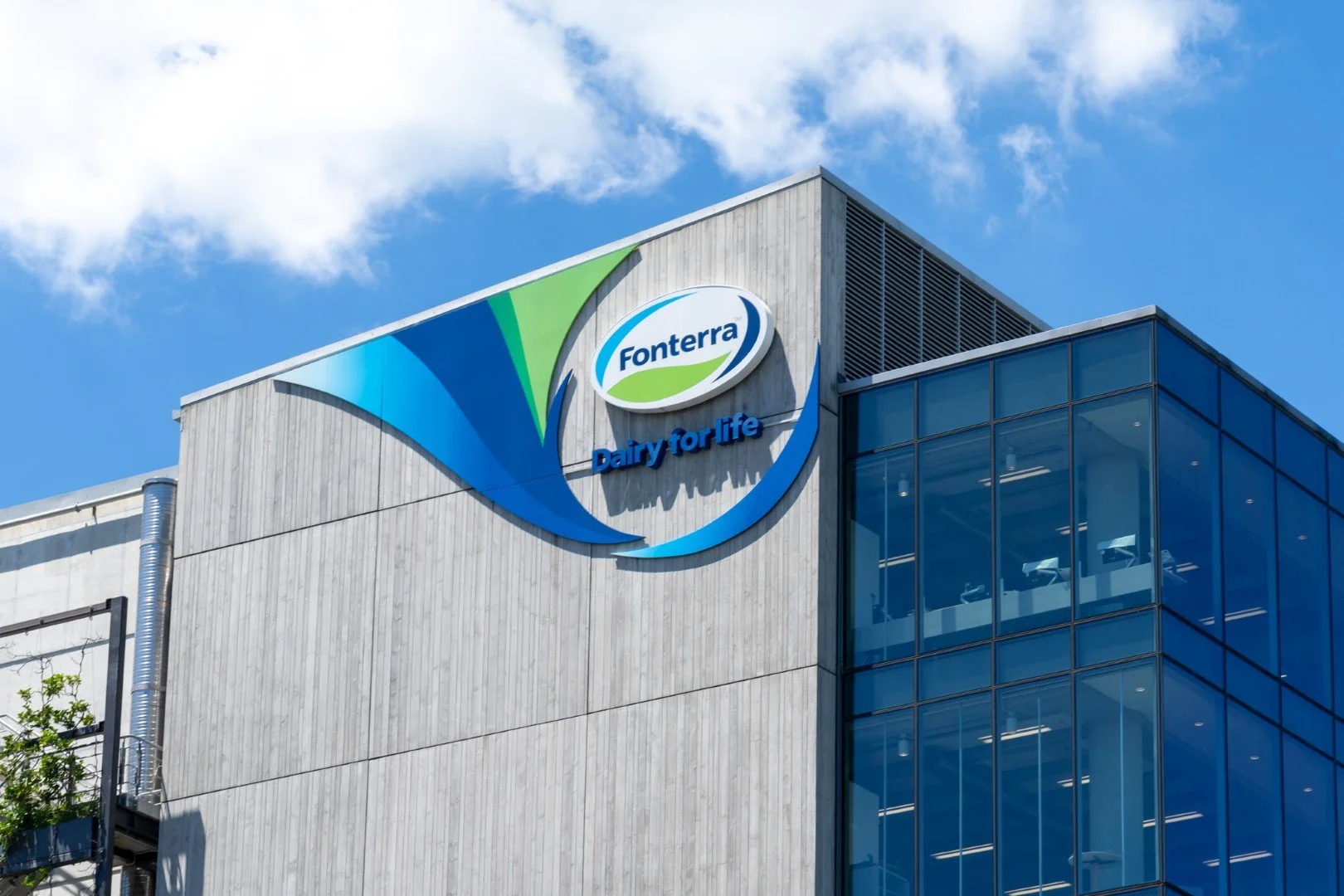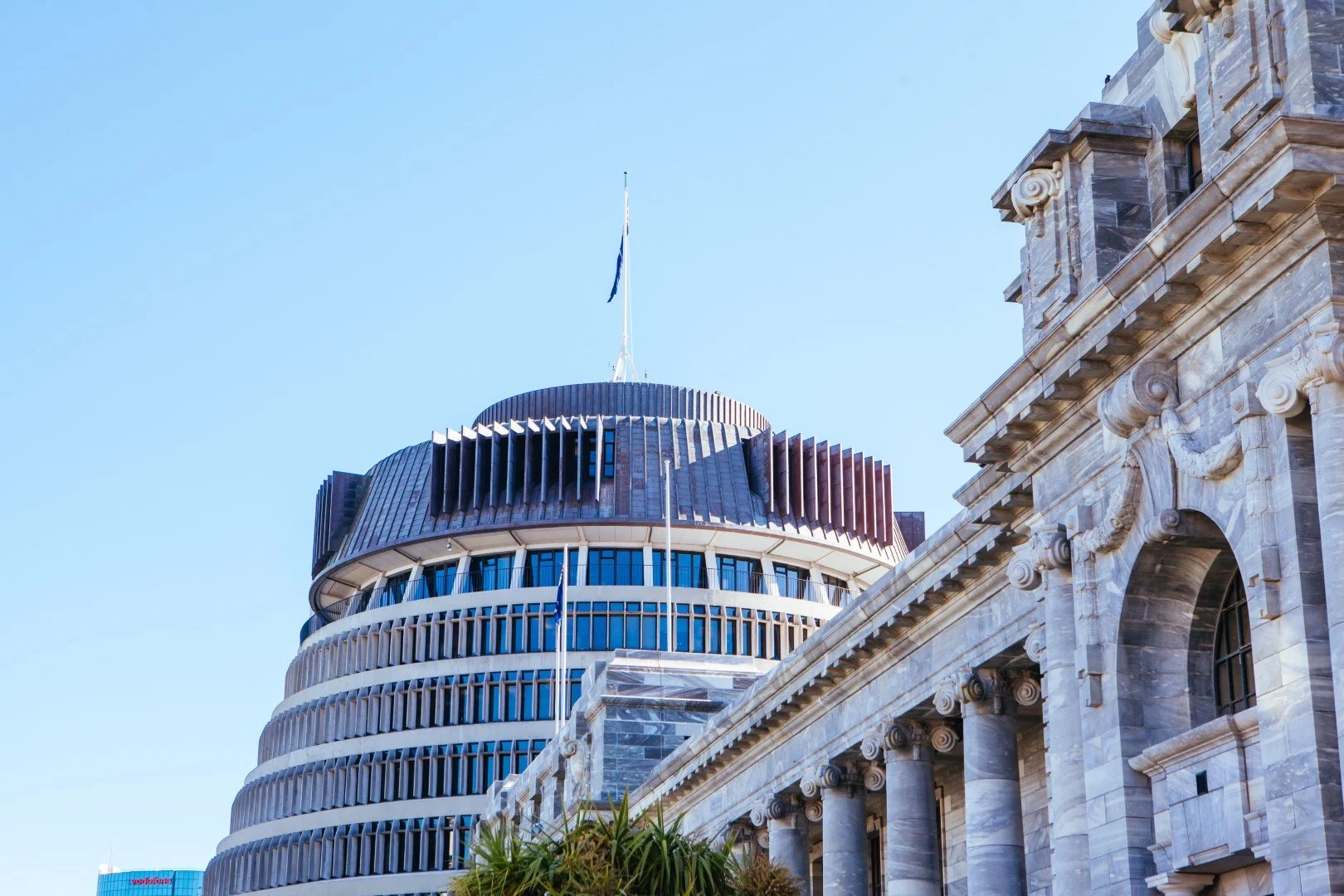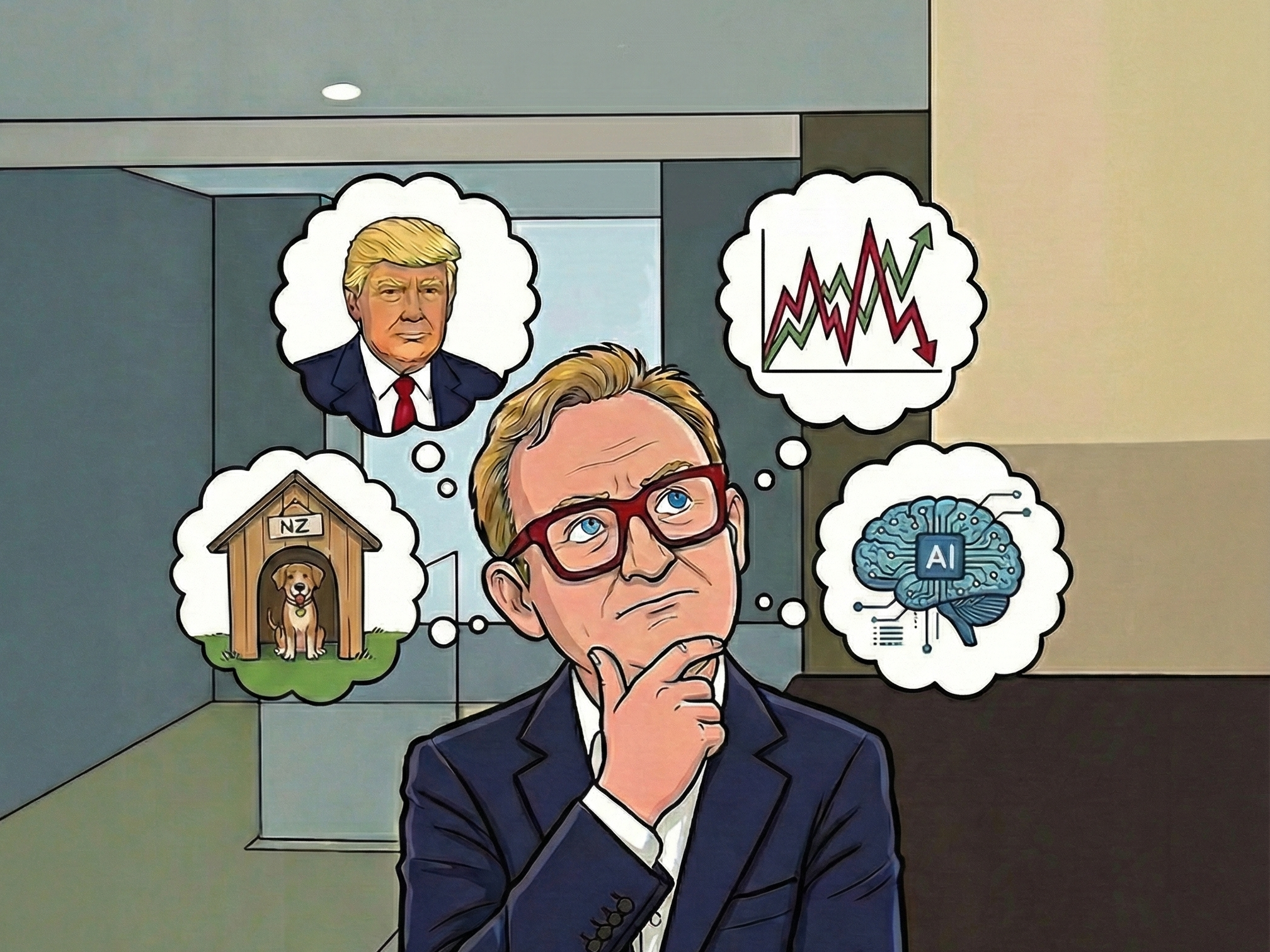Fonterra's shareholder approval of the $3.2 billion capital return from the Mainland Group sale has now been rubber-stamped. Farmers are set to receive an average of $392,000 per operation—some larger operations receiving over $2-3 million.¹
The deal, which saw 88% support back in October when the $4.2 billion sale to French dairy giant Lactalis was approved, represents a watershed moment for New Zealand dairy farmers. Last week's special meeting confirmed the capital return arrangements through a scheme of arrangement, with settlement expected any time between now and the end of March.²
JHVEPhoto - stock.adobe.com
Around 60% of shareholding farms will receive at least $200,000, while some of the co-op's largest shareholders will receive over $2-3 million. Southland's Fortuna Group, with more than 4.4 million shares, will receive close to $9 million, while state-owned farmer Pāmu could receive $10 million.²
This reflects the sector's strategic maturity and forward-thinking approach to wealth creation beyond a single generation. It's a recognition that the most resilient farming families build diversified financial structures that can support their operations and families through all market cycles.
The balance of the sale proceeds is being retained by Fonterra to reinvest in its ingredients and foodservice businesses, with some cash used to retire debt or applied as working capital. Fonterra forecast its balance sheet metrics to stay in line with targets, being debt to EBITDA of less than 3x and gearing of 30-40%.²
Understanding Real Returns: The Smart Farmer's Perspective
Savvy farmers know headline numbers don't tell the whole story.
While the recent $10.16 per kilogram of milk solids farmgate price represents a nominal record,³ astute operators understand the critical importance of inflation-adjusted returns when assessing true profitability.
The previous high-water mark came in the 2013/14 season at $8.40 per kilogram.⁴ At first glance, this suggests farmers are now receiving approximately 21% more per kilogram than they did eleven years ago. However, this comparison becomes meaningless when examined through the lens of actual input cost inflation that has fundamentally transformed farm economics.
The rising cost of production
Between 2019 and 2024, the average total cost for milk production across major exporting regions increased by around 14%, with over 70% of that increase occurring since 2021.⁵ While on-farm inflation peaked at 10.2% in the year to March 2022,⁶ costs remained elevated through 2023 before moderating slightly in 2024. However, the cumulative impact since 2013 is huge.
The structural cost uplift is evident across every input category. From 2018-19 to 2024-25:
Interest costs for an average dairy farm rose 86.5%, from $187,182 to $246,416 annually.⁷
Insurance costs increased approximately 33% over five years, with insurance premiums now succeeding fertiliser and interest rates as a major cost pressure in 2024.⁸
DairyNZ estimates dairy operating expenses reached $8.16 per kilogram of milk solids in 2022/23, up sharply from $7.23 in 2021/22.⁹ The national break-even farmgate milk price for the 2024/25 season is $7.76 per kilogram of milk solids.¹⁰
Fertiliser costs saw some products skyrocket from $799 per tonne to $1,800 per tonne during the peak inflation period.¹¹ While prices moderated in 2024 (declining 4.2% in the sheep and beef sector),¹² the cumulative impact of years of price escalation remains embedded in farm cost structures. Additionally, feed costs for dairy farms rose 28.2% between 2020-21 and 2022-23.¹³
Added pressure from interest rates
While the Official Cash Rate has fallen to 2.25%, medium and longer-term fixed mortgage rates have been rising since December 2025. Wholesale interest rates have increased more than half a percentage point since November, with banks lifting 2-5 year fixed rates accordingly.
ASB's 2-year rate now sits at 4.95% and 3-year at 5.19%, while Westpac's 4-year rate has risen to 5.19% and 5-year to 5.29%.¹⁴ Markets are pricing in potential OCR hikes from mid-2026 as inflation sits at 3.1%, above the Reserve Bank's 1-3% target band.¹⁴
This dynamic creates renewed debt servicing pressure for farmers despite the falling OCR. The disconnect between short-term policy rates and longer-term borrowing costs reflects market expectations about future inflation and the eventual return to higher rates.
Smart farmers recognise this reality: $10 per kilogram milk price (while excellent in nominal terms) represents the outcome of working harder, investing more capital, and operating more efficiently within a structurally higher cost environment. When you strip away the nominal gains and examine purchasing power, farmers aren't substantially better off than they were at the previous peak. They've simply adapted to significantly higher operating costs.
The best operators understand that sustainable wealth creation requires thinking strategically beyond the farm gate. Relying solely on commodity price increases that barely keep pace with input cost inflation is not a wealth-building strategy, it's survival.
Extreme Volatility Demands Resilience
Recent price swings have been dramatic, rapid, and unpredictable – proving why wealth structures beyond farm gate are essential for multi-generational farming families.
The season opened in August 2025 with Fonterra forecasting a midpoint of $10 per kilogram with a wide range of $8-$11 per kilogram.¹⁵ For several months, this appeared achievable as prices held firm.
December’s dairy downturn
After nine consecutive Global Dairy Trade auction declines, Fonterra cut its farmgate milk price forecast for the second time in the season in December. It dropped from the season-opening midpoint of $10 per kilogram down to $9 per kilogram with a narrowed range of $8.50-$9.50.¹⁶ Whole Milk Powder prices had fallen 5.7%, having declined nearly 28% from their May peak.¹⁶
Market commentary was uniformly bearish, with analysts warning of sustained supply-side pressure and global milk flows outstripping demand. The outlook was grim. Farmers adjusted budgets, planned for lower cashflows, and braced for a difficult season.
Then, in a remarkable reversal, the market staged a recovery.
An unexpected upswing
Four consecutive positive Global Dairy Trade auctions saw prices surge back to September levels.¹⁷ Whole Milk Powder, which accounts for half the auction by volume and has the greatest influence on farmgate milk price, rose 2.5% to US$3,706 per metric tonne in late February. Skim milk powder increased 3% to US$2,973 per metric tonne, while butter surged 10.7% to US$6,347 per metric tonne.¹⁷
Last Friday (February 20, 2026) Fonterra responded to this market recovery by lifting its forecast again, just ten weeks after the December cuts. The co-op raised the midpoint from $9.00 to $9.50 per kilogram with a new range of $9.20-$9.80.¹⁸ CEO Miles Hurrell cited "recent improvements in global commodity prices combined with Fonterra's well contracted sales book."¹⁸
Additionally, Fonterra announced a special dividend of 14-18 cents per share from the entire fiscal 2026 underlying earnings generated by Mainland Group, payable following the completion of the sale to Lactalis.¹⁸
Volatility as a hard-learned lesson
This whipsaw journey (from $10, to $9, to $9.50) over the course of just four months illustrates the fundamental challenge facing farming families who depend entirely on commodity prices for wealth creation.
These aren't gradual, predictable shifts that allow for careful planning. They're rapid, material changes driven by global supply and demand dynamics that individual farmers cannot influence or accurately predict. In August, the outlook appeared strong. By December, it appeared dire. By February, it had recovered.
What will it look like in May? July? No one knows.
This volatility creates genuine financial planning challenges for families trying to build intergenerational wealth. How do you plan for retirement, fund the next generation's education, or structure succession when your primary income source can swing 10-20% in a matter of weeks?
Critically, even as Fonterra lifted its forecast, CEO Hurrell acknowledged that "global milk production remains above seasonal norms, meaning the risk of further volatility in pricing remains."¹⁸ In other words, yesterday's good news could reverse again next month. The unpredictability is structural, not temporary.
History guarantees there’ll be another downturn. You need to establish whether your family's financial security depends entirely on timing those cycles correctly, or whether you've built diversified wealth structures that can weather volatility while continuing to generate real returns.
Learning from the Best for Diversification
The most successful farming enterprises share one common characteristic: off-farm assets that aren't correlated to dairy commodity cycles.
The farm is the engine of wealth generation, but it shouldn't be the sole repository of wealth. Diversification creates financial resilience, provides genuine optionality, and reduces dependence on factors beyond the farm gate.
Strategic diversification into property, shares, managed funds, or other investments can provide income streams that aren't dependent on global dairy prices, exchange rates, or seasonal conditions. These assets have the potential to generate real returns above inflation. They can create genuine wealth growth, rather than simply keeping pace with rising costs.
Diversification also provides crucial liquidity that farm assets cannot deliver. When opportunities arise—whether that's acquiring neighbouring land, investing in new technology, or supporting the next generation's education—liquid investments can be accessed without forcing farm asset sales at potentially disadvantageous times. When emergencies occur, diversified wealth provides options and reduces stress.
This builds a comprehensive financial strategy that supports both farm and family for generations. The farm remains the core productive asset and the foundation of family identity and purpose – within a broader wealth structure providing stability, optionality, and genuine financial security through all market conditions.
Many farmers intend to reinvest this capital return into their farming operations.² This makes sense for operations with clear productivity improvements available. However, the most strategic approach balances on-farm reinvestment with genuine diversification beyond the farm gate.
There’s a question every farming family should ask: if we reinvest everything back into the farm, are we building wealth – or simply maintaining our exposure to a single asset class subject to extreme volatility and structural cost inflation?
Ensuring Quality Advice
As farmers contemplate deploying this imminent capital, the relationship with their financial adviser becomes paramount. This may be the largest single capital deployment decision many farming families ever make. Getting it right requires an adviser who is genuinely and legally committed to putting your interests first.
Will your adviser provide a written statement affirming that the advice relationship is of a fiduciary nature, where your interests unequivocally surpass those of the adviser?
Under New Zealand's financial advice regime, advisers are legally required to put their clients' interests first when giving advice and to prioritise their clients' interests over any conflicts.¹⁹ However, requiring your adviser to put this commitment in writing—in clear, unambiguous language—separates those who truly embrace fiduciary responsibility from those who simply meet minimum compliance standards.
Request a letter explicitly stating that all recommendations will prioritise your long-term financial wellbeing over commission structures, conflicts of interest, product preferences, or any other adviser considerations. This letter should confirm:
That the adviser will put your interests unequivocally ahead of their own
That they will disclose all conflicts of interest proactively
They will recommend only investments and strategies that serve your long-term objectives
Their compensation will be structured in alignment with your success
They will provide ongoing accountability for the advice given
If an adviser hesitates or refuses to provide this written commitment, that tells you everything you need to know about where their priorities truly lie. The best advisers welcome this clarity because it aligns with how they already operate.
It’s not about distrust—it's about establishing crystal-clear accountability in what may be the most significant financial planning exercise of your farming career.
Payment is Imminent – What About a Plan?
The timeline has crystallised. With settlement expected between now and the end of March,² farmers have mere weeks before capital arrives. The Overseas Investment Office approval cited the $3.2 billion direct injection of capital to New Zealand farmers as a strong economic benefit, alongside Lactalis' $100 million capital expenditure commitment and ongoing supply arrangements.² Finance Minister Nicola Willis confirmed the transaction met the "benefit to New Zealand test."²
For farmers who haven't yet engaged in comprehensive financial planning, the time to act is now—not after the money arrives. Once capital is in the bank account, the psychological pressure to "do something" with it can lead to reactive decisions, not strategic ones.
Execute on robust financial planning that diversifies wealth beyond agricultural assets into uncorrelated investments, creates multiple income streams independent of commodity cycles and inflation erosion, structures tax-efficient wealth transfer to the next generation, provides financial resilience and liquidity against future market downturns, and builds genuine intergenerational wealth that can support family objectives for decades.
Work with advisers now to develop comprehensive plans, have thorough family discussions about objectives and succession, and ensure structures are ready for when the capital arrives. The planning should happen now; the deployment happens when the money is in your account.
The Bottom Line
The dairy sector has proven its resilience, discipline, and strategic thinking through multiple crisis periods. But dependence on commodity prices alone creates unnecessary risk for farming families seeking to build multi-generational wealth.
Now, thanks to the Fonterra sale, farmers can take the next strategic step—building financial structures that weather all cycles and generate real wealth across generations. Beyond the next season, or even the next decade, this is about creating financial security that supports your family's farming legacy for the next century.
The question becomes whether you'll deploy the capital strategically, with proper advice, appropriate diversification, with explicit attention to generating real returns above inflation.
With capital arriving imminently and markets demonstrating their unpredictability daily, the time for planning is now. The most successful farmers will approach this thoughtfully, strategically… and with professional, fiduciary guidance that puts their interests unequivocally first.
Nick Stewart
(Ngāi Tahu, Ngāti Huirapa, Ngāti Māmoe,
Ngāti Waitaha)
Financial Adviser and CEO at Stewart Group
Stewart Group is a Hawke's Bay and Wellington based CEFEX & BCorp certified financial planning and advisory firm providing personal fiduciary services, Wealth Management, Risk Insurance & KiwiSaver scheme solutions.
The information provided, or any opinions expressed in this article, are of a general nature only and should not be construed or relied on as a recommendation to invest in a financial product or class of financial products. You should seek financial advice specific to your circumstances from a Financial Adviser before making any financial decisions. A disclosure statement can be obtained free of charge by calling 0800 878 961 or visit our website, www.stewartgroup.co.nz
Article no. 446
References
BusinessDesk (19 February 2026). "Fonterra farmers set to rubber stamp $3.2b Mainland Group capital return". ASB estimated average return at $392,000, with 60% receiving at least $200,000.
BusinessDesk (19 February 2026). Settlement expected between now and end of March 2026.
NZ Herald (26 September 2025). Final farmgate milk payout reached $10.16 per kilogram of milk solids.
NZ Herald (18 March 2025). In 2013/14 season, Fonterra paid $8.40/kg.
Rabobank (18 February 2025). Between 2019 and 2024, average total cost increased 14%, with over 70% since 2021.
NZ Herald (22 August 2022). On-farm inflation 10.2% for year to March 2022.
Farmers Weekly (4 June 2024). Interest costs rose 86.5% from $187,182 (2018-19) to $246,416 (2024-25).
USDA (2025). In 2024, insurance premiums succeeded fertiliser and interest rates as major cost pressure.
Infometrics (August 2023). Operating expenses at $8.16 per kgMS in 2022/23.
DairyNZ (2024). Break-even at $7.76 kg/MS for 2024/25.
NZ Herald (22 August 2022). One fertiliser increased to $1,800/tonne from $799/tonne.
Beef + Lamb NZ (June 2024). Fertiliser declined 4.2% in 2023-24.
DairyNZ. Feed costs rose 28.2% between 2020-21 and 2022-23.
RNZ (9 February 2026) and Opes Partners (25 February 2026). ASB: 2-year at 4.95%, 3-year at 5.19%; Westpac: 4-year at 5.19%, 5-year at 5.29%. Wholesale rates up over half a percentage point. Note: BNZ reversed recent rate hikes on 27 February 2026, cutting 3-year to 4.99%, 4-year to 5.19%, 5-year to 5.29%.
Fonterra (August 2025). Season opened at $10/kg midpoint with range $8-$11/kg.
Farmers Weekly (18 December 2025). Fonterra cut forecast to $9/kg midpoint, range $8.50-$9.50, following nine consecutive GDT declines.
BusinessDesk (19 February 2026). WMP rose 2.5% to US$3,706/MT, SMP 3%, butter 10.7% following four consecutive positive auctions.
Reuters/Fonterra (20 February 2026). "NZ's Fonterra lifts annual milk price forecast, teases special dividend". New midpoint $9.50/kg, range $9.20-$9.80. Special dividend 14-18 cents per share from Mainland Group FY26 earnings. CEO noted volatility risk remains.
FMA New Zealand. Advisers must put client's interests first.















